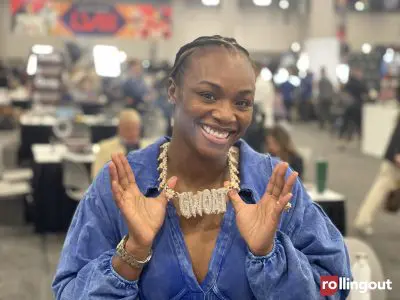
Give or take a few pounds, this has been my body since I was 14. It is an archetypal Black woman’s body, which until recently, I viewed with indifference or self-consciousness. Now 47, I am confident and proud in my bikini, the first I’ve ever owned. In the past I sought to avoid cat-calls. I was also a bit of a prude. What I’ve learned in my forties is to not give a care.
This kind of essay appears every now and then but is typically penned by a White woman wearing rose-colored glasses. I peer through a different lens, one shaded by slavery, systemic racism, and segregation, inescapable to even the most privileged Black women. As a consequence, before I remark on the roses, I must disclose our worries. Foremost among them, the plight of our Black men: our fathers dead prematurely; our sons racially profiled; our brothers gunned down; our lovers maligned. When we turn from them, our anxieties shift to the black collective, the problems of which — failing schools, mass incarceration, high rates of debt, divorce, and unemployment — are well documented.
In my 40s, I’ve come to understand how we bear it all. It is through our faith, which regardless of religious practices, permeates from our souls the way rhythm does from our hips. Both invaluable gifts from mothers of a thousand years ago. They allow us to dance rather than feel sorry for ourselves even if we have reason to.
In reflecting on the love I won’t have, the friends I’ve lost, and the discrimination I’ve felt, I’ve come to know life’s limitations. The things one should be reasonably able to expect: a stable career; an appreciating home; a suitable mate, do not fall into the Black woman’s lap. She must exercise focus, discipline, and agency. Even then, she may not succeed. I certainly have not. And without a safety net, the financial, personal, and professional mistakes I’ve made have had a powerful and sustained impact on my life. I have been humbled.
This has proved a good thing for while I’m a serious person, a lawyer and activist who writes about the death penalty and inequities in the justice system, I no longer take myself so seriously — I can have fun showing off my bikini.
(See how I just turned lemons into lemonade? Black women mastered this recipe long before Beyoncé’s album.)
We view our lives as lenticular art, choosing to see what befalls us as a blessing or curse. For instance, I choose to appreciate my small waist, which requires no physical exertion on my part to maintain. I could view it as a reminder that I have never known the pleasure and pain of what to some defines womanhood: childbirth.
Gratitude is a mainstay of the “what I’ve learned” genre, but while White women tend to explore it through abstract notions of how things could be worse or by extrapolating from a lived calamity, the Black woman’s thankfulness is grounded in everyday realities. For example, I am grateful for my beautiful smile because in my family it is not uncommon to have dentures at my age. I learned why when after law school I had to fork over $2,000 for my fourth root canal. The first three had been covered by my mother’s insurance (hard won by her CWA Union). Without it, a $100 extraction would have been difficult to afford.
We are also aware that catastrophe is too often afoot. When I was 4 I watched my father spray five bullets into my mother. She survived. Other tragedies ensured. By age 13, I had enough material to fill a book. In it, I recall my grandmother’s advice, “Wake up every morning expecting the best to happen. When the worst comes instead. Accept it and move on.”
This is a truism that extends beyond the Black experience. There are others: that forgiveness is a great asset; that people can change but usually don’t; that the world is filled with more kind souls than scumbags; that while patience is a virtue, there are some things one should not put off any longer. One of those is wearing a bikini.
















